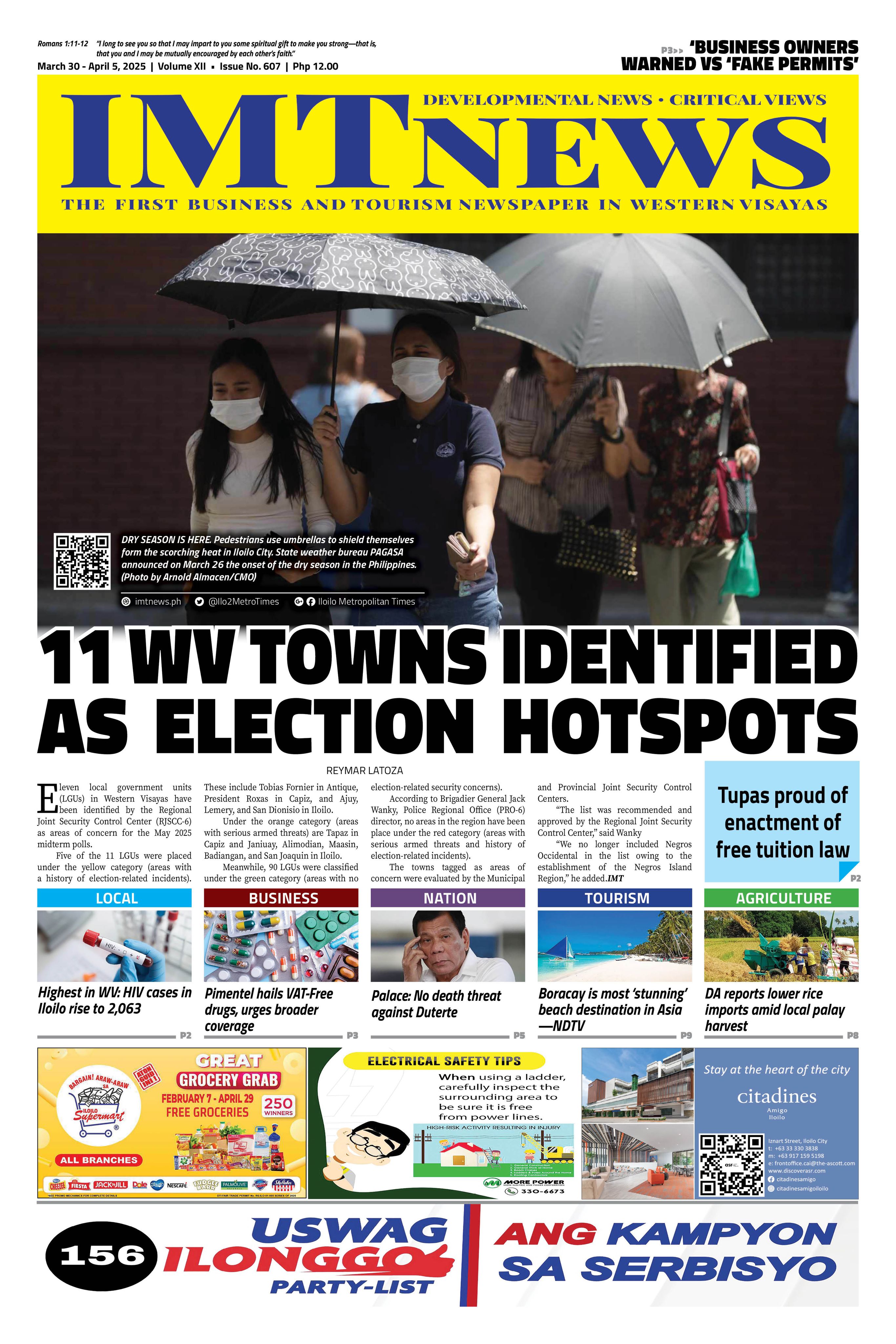The Iloilo City Government is looking forward to ending its use of a sanitary landfill in addressing its garbage woes by shifting to a sustainable and efficient technology through the waste-to-energy (WtE) project and aiming to be the first of its kind in the country.
A ceremonial signing of joint certification of successful negotiation between the local government here and Metro Pacific Water (MPW) for the Iloilo City Integrated Solid Waste Management Facility (Waste-to-Energy) or the WtE project (ISWMF) was held on Tuesday, June 27, with Mayor Jerry Treñas and MPW president and chief executive officer Rogelio Singson as signatories.
“With the Calahunan sanitary landfill nearing the end of its life span in just three short years, the urgency to find alternative waste management solutions cannot be overstated. The introduction of a WtE facility not only provides a sustainable and efficient solution for managing the city’s waste but also presents a remarkable opportunity for Iloilo City’s economic growth,” Treñas said in his message during the short ceremony.
In a follow-up interview, Treñas said the proposal of the MPW will be subjected to a competitive or Swiss challenge.
The Swiss challenge is an alternative selection process wherein third parties or challengers shall be invited to submit comparative proposals for a project as defined in the Integrated Public-Private Partnership Code of Iloilo City. The system’s objective is to discourage frivolous projects or to avoid inflated project costs.
Treñas said the project would clear the 23-hectare sanitary landfill that could be repurposed to boost the city’s economic activity.
“As I understand this waste-to-energy will be used by Metro Pacific (Water) for their desalination plan, which is very much needed for the potable water needs of the city,” he added.
Singson, in his message, said they would like to complete this project in Iloilo so they could have a good model to be replicated all over the country.
“It’s the same problem all over the country. This project will kickstart Iloilo City’s growth to sustainable solid waste management goals, solidifying the city as a leader and good model for sustainable waste management in the whole country,” he said.
In an interview, Singson said they chose to propose the project in the city because of its existing water project.
“This to me is an ideal model for cities where we have water, bulk distribution, and wastewater under one roof,” he said.
The proposed WtE facility can process up to 470 tons of non-recyclable wastes as potential fuel a day and produce around 2.4 megawatts of energy.
A press statement released by the MPW Tuesday evening said the ISWMF would treat, recover, and convert the city’s waste into refuse-derived fuel (RDF) and biogas, considered renewable energy sources by the Department of Energy.
“It will significantly reduce the waste that ends up in Iloilo landfills, conserving natural resources, and minimizing environmental impact. The project is also estimated to result in a reduction of 129,000 metric tons per year of CO2 (carbon dioxide) equivalent,” it said.
Engineer Neil Ravena, head of the Iloilo City Environment and Natural Resources Office (CENRO), said the project would address all kinds of wastes as its mechanical biological treatment facility would cater to organic wastes with high-moisture content, an anaerobic treatment facility for other non-organic wastes, and RDF for plastic wastes.
“We will close Calahunan (sanitary landfill) and rehabilitate through bioremediation to bring it back to its old state where there are no more wastes, leachate, and methane gas. Calahunan is now being considered as a prime lot,” he said in an interview on Wednesday.
The city generates 370 tons of solid waste per day, he said.Perla Lena/PNA








